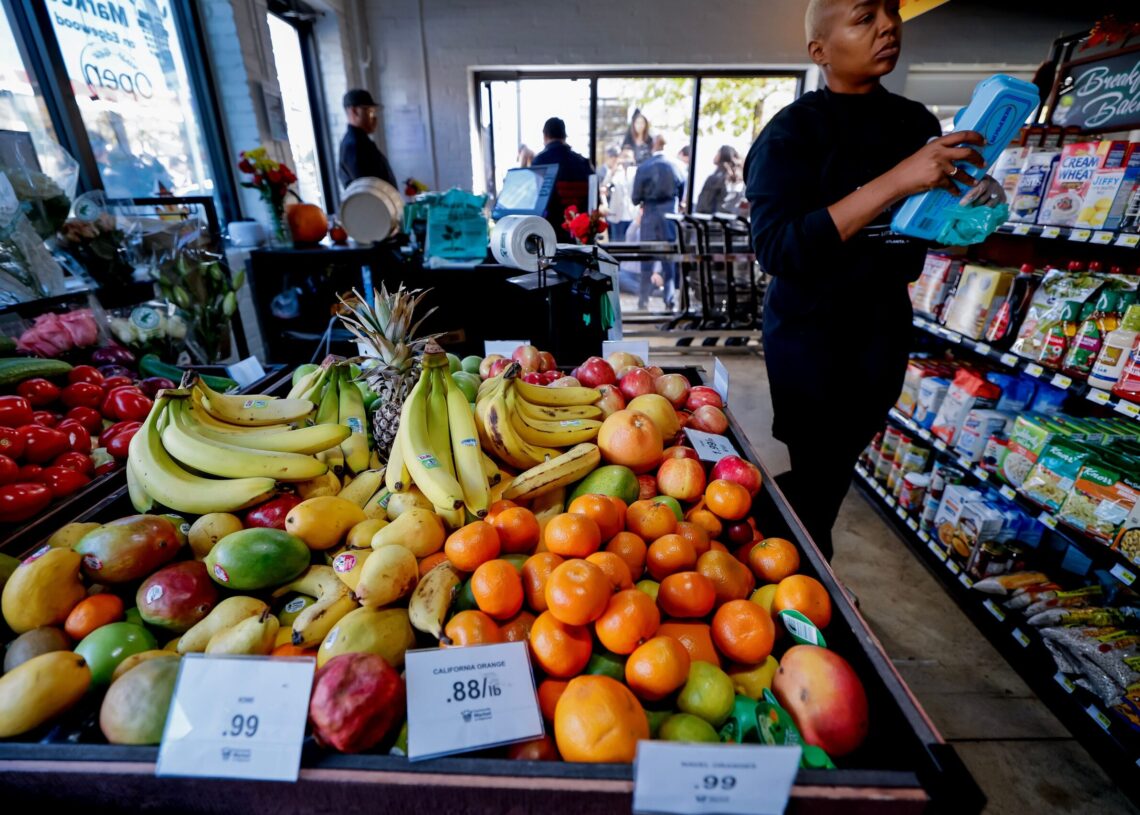The Trump administration on Monday again asked the Supreme Court to block lower-court decisions requiring it to pay full food assistance benefits to about 42 million Americans who rely on the nation’s largest anti-hunger program.
The request marked the second time in a few days that Trump officials have urged the justices to intervene in a court battle over Supplemental Nutrition Assistance Program (SNAP) payments and prevent other judges from forcing the administration to fully fund benefits for November.
The Trump administration on Monday again asked the Supreme Court to block lower-court decisions requiring it to pay full food assistance benefits to about 42 million Americans who rely on the nation’s largest anti-hunger program.
The request marked the second time in a few days that Trump officials have urged the justices to intervene in a court battle over Supplemental Nutrition Assistance Program (SNAP) payments and prevent other judges from forcing the administration to fully fund benefits for November.
In his filing to the high court, Solicitor General D. John Sauer castigated judges who have ruled against the administration on the issue. Decisions about what programs to fund are “precisely the prerogative of the political branches, not of the politically unaccountable federal courts,” Sauer wrote.
The SNAP program ran out of funds on Nov. 1 because of the government shutdown. SNAP payments, formerly known as food stamps, are essential for millions of people, many of whom depend upon them to afford groceries. Most of the people relying on SNAP are children, the elderly or disabled adults.
The Trump administration has resisted tapping money from other government resources that could pay for the food relief, saying that would lead to shortfalls for other programs. States and nonprofit organizations have sued to get the assistance payments flowing again, writing in court papers that Americans will go hungry without the benefits.
Sauer wrote in the filing that the case before the justices could soon be moot because of an agreement advancing on Capitol Hill that, if adopted, could end the shutdown and fund SNAP through September. He also faulted judges for ruling against the administration amid congressional negotiations, saying their actions “inject the federal courts into the political branches’ closing efforts to end this shutdown.”
With the shutdown continuing, the legal back-and-forth has left low-income families and scores of others across the country unsure about whether they will receive the usual benefits for November. The SNAP program is managed federally by the U.S. Department of Agriculture, while states administer the funding to residents. The specific days when states make the benefits available vary from place to place.
In a court filing, a group that sued to release SNAP payments said that not providing the full benefits would harm millions of people, cost small businesses significant revenue driven by SNAP purchases and force city officials to redirect resources to feed residents.
The high-stakes legal battle has fluctuated significantly in recent days, shrouding the status of the funding and the benefits in uncertainty as courts and government officials issued a whirlwind of orders and directives.
Last week, a federal judge in Rhode Island ordered the administration to make full SNAP payments for November.
U.S. District Judge John J. McConnell Jr. initially ordered the administration to seek additional money to fund full SNAP payments. But if officials opted to make partial payments instead, McConnell said, they had to act “expeditiously” and get them out by Nov. 5.
On Thursday, McConnell said the administration had failed to follow through, and he ordered officials to make the full payments by the following day.
“Without SNAP funding for the month of November, 16 million children are immediately at risk of going hungry,” said McConnell, who was appointed by President Barack Obama. “This should never happen in America.”
Government attorneys have blamed the lack of funds for SNAP benefits on “congressional failure.” In court papers, the Justice Department said the administration did not want “to raid an entirely different program” that would lead to a shortfall in funding school meals to pay for SNAP.
On Friday, the Trump administration appealed to the U.S. Court of Appeals for the 1st Circuit, which declined to issue a temporary pause known as an administrative stay while the court was considering whether to block McConnell’s order. The panel said it would rule “as quickly as possible” on the issue.
That prompted the Justice Department to ask the Supreme Court to pause McConnell’s order on Friday night.
Justice Ketanji Brown Jackson, who hears cases arising out of the 1st Circuit, issued an administrative stay hours later to give the appeals court time to consider how to handle McConnell’s ultimatum. Jackson, a liberal justice appointed by President Joe Biden, said her brief stay was needed “to facilitate the First Circuit’s expeditious resolution of the pending stay motion.”
A three-judge panel with the 1st Circuit late Sunday denied the Trump administration’s request to stop the release of the full funding that was ordered by McConnell. In its opinion, the panel said the harms from pausing McConnell’s order would be vast because “tens of millions of Americans rely on monthly SNAP benefits to pay for food.”
Sauer, in his filing to the U.S. Supreme Court on Monday afternoon, said that the administration “unequivocally agrees that any lapse in SNAP funding is tragic.”
But this lapse was created by Congress, Sauer wrote, leaving the executive branch “to triage which crucial programs get limited available residual funds.”
Sauer said that with a potential deal to end the shutdown in the works on Capitol Hill, the Supreme Court should pause lower-court orders requiring the full SNAP payments “to let the political process that is rapidly playing out reach its conclusion.”
Left in place, Sauer said, the “unlawful orders risk upsetting” the agreement being worked out in Congress.
The Trump administration has given conflicting information regarding the status of the SNAP benefits during the legal debate.
Before the Supreme Court stay was issued late Friday, the Agriculture Department had sent a notice to states suggesting that it was working to issue the full funds to comply with McConnell’s order.
The following day, however, with Jackson’s order in effect, the agency told states to “immediately undo any steps taken to issue” full payments. The Agriculture Department warned states they could face consequences for not complying, including potentially losing some funding.
A handful of states that had sued to free up the November SNAP benefits challenged the order, writing in a court filing that officials were facing “ruinous financial” consequences if they did not comply with the latest directive. A federal judge in Massachusetts on Monday paused the Agriculture Department’s notice.
The post Trump administration asks Supreme Court to intervene in SNAP fight again
appeared first on Washington Post.




